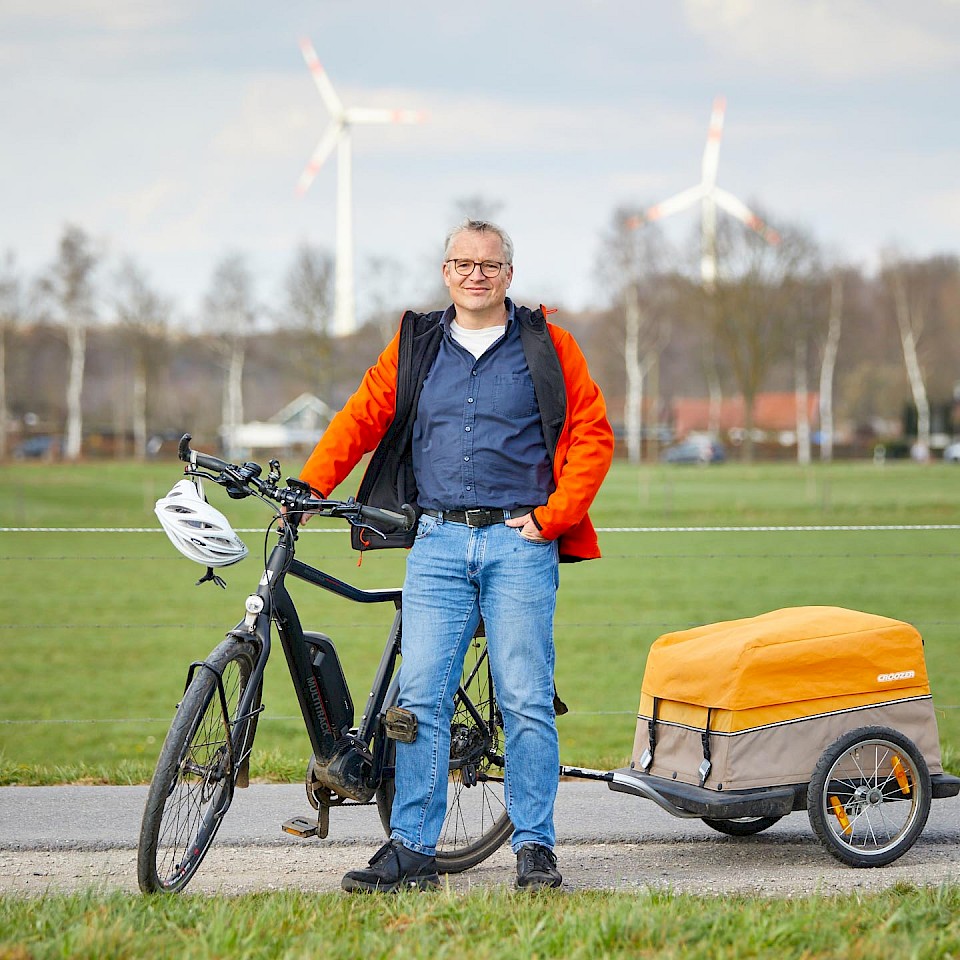
© Münsterland e.V./Philipp Fölting
Building renovation
If not now, then when? You have bought a house in Klimaland Münsterland - congratulations! It represents a high financial value and you spend a lot of time in it. Reason enough to make it climate-friendly. Thermal insulation benefits you in several ways:
- Promotes cosiness
- .
- Good for the security of your property.
- Good for your wallet.
- And good for the climate.
Refurbishment guide
The Münsterland Renovation Guide tells you the right way to approach a renovation and what you need to consider in each project phase. With a clear structure, illustrative graphics and checklists for your own implementation, the guide leads its readers through the refurbishment process. You can obtain the refurbishment guide in digital or printed form from your local authority or district. Here you can find an example of the guide from the town of Lengerich. Do you have any questions or need further advice? Then please contact the climate protection manager in your municipality.
More tips
You can enjoy a cosy indoor climate and lower heating costs every day in your modernised home. Here we give you an overview and helpful tips if you are interested in energy-efficient refurbishment.
Energy | Investing instead of burning
Out of the window, over the roof or through the basement: a lot of energy disappears from uninsulated buildings. Many old buildings in Germany consume 20 litres of heating oil or more per square metre per year. With 100 square metres of living space, that's at least 2000 litres per year - a real energy guzzler. By comparison, a new building consumes only six litres, and a passive house only 1.5 litres.
Is your house from 1994 or older? Then it's worth looking into energy-efficient renovation. We consume the lion's share of energy in residential buildings for heating and hot water (85 percent). Only 15 percent is used for lighting and household appliances. Thermal insulation and efficient building technology - this is where enormous savings potential lies dormant. Every house is different, and every homeowner has different wishes. Some old walls keep the heat in the house better than others. Some owners want to do all-round insulation, others want to move in first and tackle a partial renovation.
Counselling | The first step
An energy consultation is always the first step towards successful energy renovation. Here, the various renovation steps are coordinated with each other, and a completely individual renovation roadmap is created for you. This building check also tells you which subsidies are available for which measures. This way you are well prepared for discussions with planners, craftsmen and financiers.
You can find tips here at the NRW consumer advice centre.
Partial insulation | Costs little and brings a lot
Even small changes have a big impact on the climate balance of your house:
- Cold feet on the ground floor show that heat is lost downwards through the basement ceiling. This component is easy to insulate from below. If there are cavities in the floor structure, it may make sense to blow them out from above with an insulating material.
- If the attic space is not used for living purposes and can remain cold, insulating the top floor ceiling is the most efficient and cost-effective insulation measure of all.
- Every little bit helps: It pays to insulate the roller shutter boxes, the attic stairs and also all radiator niches.
Farewell to oil and gas
There are various ways in which you can convert your heating to renewable energy sources. On the one hand, there are individual solutions such as heat pumps or pellet heating systems, which are also possible in old buildings. On the other hand, especially in residential areas where many houses have similar requirements, a heating network may be an option. Perhaps the local utility is already planning such a network for the coming years? Get independent advice to find the most energy- and cost-efficient solution for your home.
Switching away from fossil energy sources is definitely worthwhile both for the climate and financially: there is an attractive subsidy from the federal government for heating system replacement. There are also special electricity tariffs for heat pumps that are cheaper than the normal household electricity tariff.
Tip: Do you live in the Steinfurt district? Then you can take advantage of the advice offered by the district of Steinfurt. You can find all the information here.
Tip: If you don't currently have the financial means for a new heating system or if your gas heating system is still very young, you can have it optimised first in order to operate it more efficiently. Everything you need to know about this can be found at the NRW consumer advice centre.











